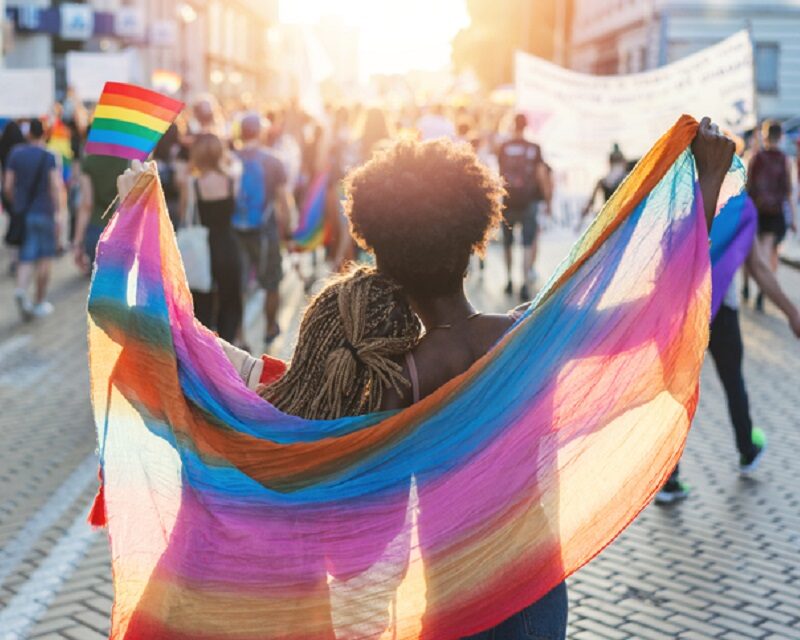
Through our work over the past 15 years, we know that the LGBTQI+ community faces increased vulnerability to human trafficking. In recognition of the unique experiences of these individuals, staff from the National Human Trafficking Hotline implemented an internal working group to address concerns and provide internal organizational support. The Gender, Sexual, and Romantic Minorities (GSRM) working group assists the Hotline in ensuring that we are serving victims and survivors of trafficking who identify as LGBTQI+ in a compassionate and competent way. We provide organization-wide technical assistance, as well as ongoing internal education through resources and training.
Since our inception, we have worked on a variety of projects: we helped establish inclusive gender categories for the National Hotline, worked with our Human Resources department to establish Polaris’s gender neutral dress code, and instituted a template for pronouns in staff email signatures. These organizational-focused projects help create a culture of inclusion within our organization to focus and guide our work.
We continue to enhance and maintain staff knowledge and competency by the development of an internal protocol for Hotline Advocates to better serve our callers who identify as transgender and gender non-conforming. This resource gives guidance on definitions and terms, best practices and appropriate language, and ways to advocate with and for LGBTQI+ victims when working with service providers and family or friends. In conjunction with this protocol, we organized and co-facilitated an LGBTQI+ competency training for hotline staff with the expertise and assistance of a trainer from the DC Center for the LGBT Community.
One ongoing and long-term project of the GSRM is tracking hotline cases involving LGBTQI+ identifying victims and survivors in the effort to understand and improve internal response to these individuals. We working to expand this project towards monitoring these cases so we can better evaluate both gaps and positive trends in service provision for LGBTQI+ victims and survivors of trafficking.
Most recently, two GSRM members participated in a video conference call with government officials, service providers, and LGBTQI+ organizations in the Philippines discussing international efforts toward assisting LGBTQI+ youth victims of trafficking. We shared our thoughts on prevention and policy goals, as well as best practices toward inclusive service provision and data collection.
We’ve made a lot of progress on the Hotline and at Polaris, but we have a lot of work left to do. Over the next few years, we will be working hard to foster and strengthen relationships with local and national LGBTQI+ organizations and service providers to provide technical assistance, grow a network of organizations who understand the specific vulnerabilities and needs of the community, and to get the word out to LGBTQI+ victims and survivors that we are here to assist, and here to listen.


